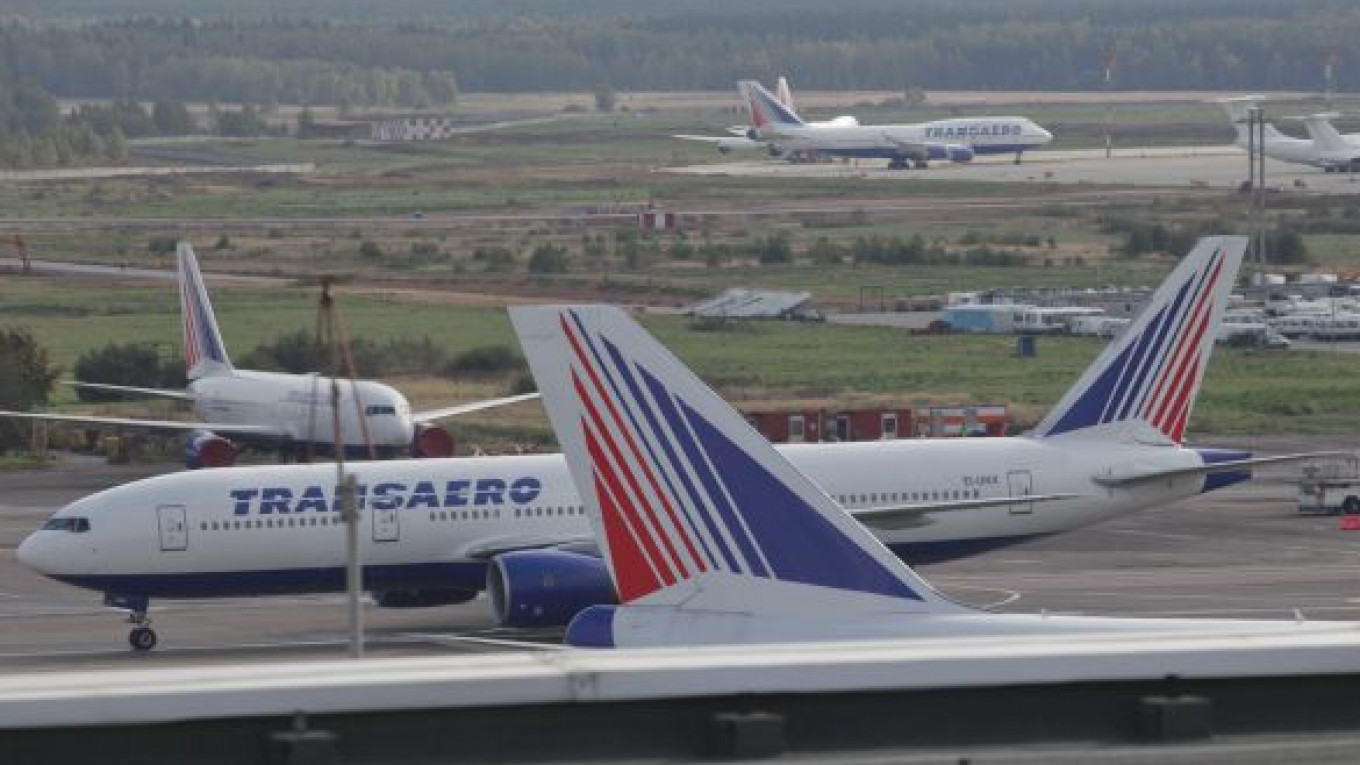Transaero has launched sales for its long-awaited Italian routes with an aggressive undercutting of prices offered by rival Aeroflot.
The airline announced late Tuesday that it would begin flying to Rome from Moscow's Vnukovo Airport on June 27 and to Milan from June 30, confirming remarks made by chief executive Olga Pleshkova on her Twitter feed a week ago.
A browse of the airline's website showed significantly lower pricing than Aeroflot, which has until now monopolized Italian routes.
A trip to Rome leaving on June 27 and returning July 1 cost 21,665 rubles ($698) on Aeroflot's website Wednesday afternoon. The cheapest Transaero ticket on the same day cost 13,616 rubles ($439).
Prices start from 12,500 rubles in economy and 37,400 rubes in business — cutting up to 50 percent off of Aeroflot's least expensive offerings on the same routes, Vedomosti reported Wednesday.
It is not clear whether the strategy is sustainable, however. Dmitry Gorin, the head of the Russian Tour Operators Association, told Vedomosti that the cheap fares were probably a temporary promotional measure but welcomed the trend toward competition lowering prices.
Transaero, Russia's second-largest airline, only won the right to fly to Italy earlier this month after leading a campaign against what it called Aeroflot's monopolization of the route. Previously the intergovernmental agreement governing air transit allowed only Aeroflot and Alitalia to fly between the two countries.
An amended agreement signed in February gave both countries the possibility to nominate a second airline to fly certain routes. Transaero subsequently won a tender for 14 flights a week to Rome and Milan.
Other Russian beneficiaries were Sibir and Aeroflot subsidiary Rossia, which won rights to fly to Bologna, Verona, Genoa, Naples, Rimini and Palermo.
A Message from The Moscow Times:
Dear readers,
We are facing unprecedented challenges. Russia's Prosecutor General's Office has designated The Moscow Times as an "undesirable" organization, criminalizing our work and putting our staff at risk of prosecution. This follows our earlier unjust labeling as a "foreign agent."
These actions are direct attempts to silence independent journalism in Russia. The authorities claim our work "discredits the decisions of the Russian leadership." We see things differently: we strive to provide accurate, unbiased reporting on Russia.
We, the journalists of The Moscow Times, refuse to be silenced. But to continue our work, we need your help.
Your support, no matter how small, makes a world of difference. If you can, please support us monthly starting from just $2. It's quick to set up, and every contribution makes a significant impact.
By supporting The Moscow Times, you're defending open, independent journalism in the face of repression. Thank you for standing with us.
Remind me later.






